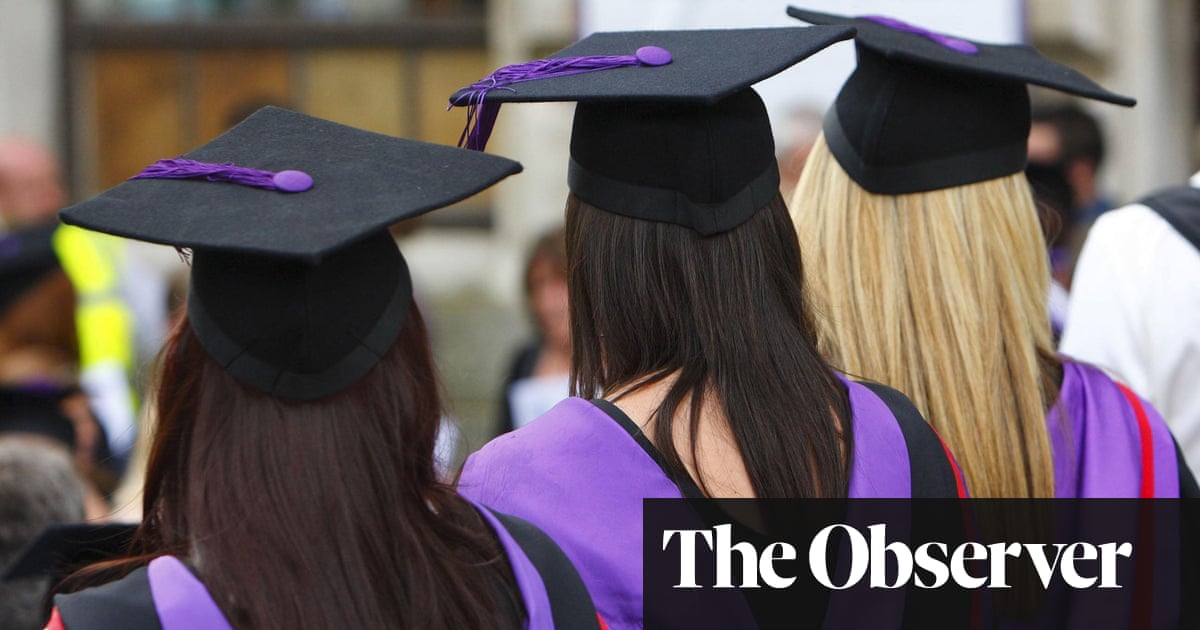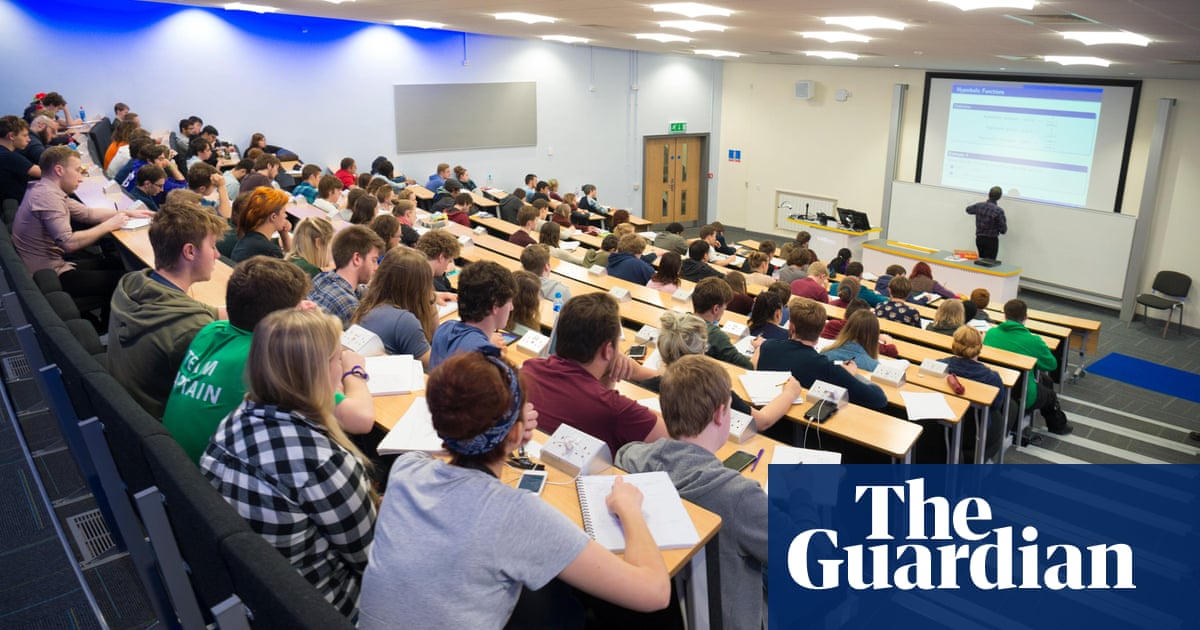
Universities are reporting a steep drop in international students applying to come to the UK, amid warnings that further restrictions on student visas would torpedo a vital flow of talent for Britain’s creative industries.
University and industry leaders fear that the graduate visa entitlement, which allows international graduates to work in the UK for up to three years, could be axed or curtailed, depending on the findings of a report by the migration advisory committee (MAC) due to be delivered to the government on Tuesday.
Creative UK, which represents the creative industries, says removing the ability for international students to stay and work in the UK after graduation would be a powerful disincentive to study here, damaging a sector worth £108bn a year.
Restrictions on international students imposed earlier this year may already have caused a decline in students applying from overseas, and uncertainty over the fate of the graduate visa appears to have set off a further fall, according to a survey of UK universities.
The poll of 75 institutions by the British Universities’ International Liaison Association found that nine out of 10 had fewer international applications for the next academic year, and there had been a 27% fall in total applications for taught postgraduate courses compared with last year.
A joint letter by Creative UK and Universities UK, which represents vice-chancellors, urges the government to reject plans to abolish or restrict the graduate visa route, arguing that international graduates are integral to the creative industries, which are now more significant than the UK’s aerospace, life sciences and automotive industries combined.
“Following further increases to visa fees and salary thresholds, the graduate visa represents one of the few routes left which enables talented graduates to remain in the UK and contribute to our growing creative industries,” the letter states. “Whether it’s a young Jimmy Choo developing his craft at Cordwainers or world-renowned DJ Peggy Gou, who studied at London College of Fashion, the role our universities play in attracting the best creative talent from around the world goes to show the soft-power influence of our institutions.”
Sally Mapstone, the vice-chancellor of St Andrews University and president of Universities UK, told Sky News on Sunday: “International students are incredibly important to UK culture. They contribute a huge amount to universities, to the economy, to skills and jobs and we think it would be a tragedy – calamitous not just for institutions but actually for the UK as a whole – if the government took what would actually be quite unnecessary further action to restrict the number of international students.”
The British Academy has told the MAC that removing the graduate visa would “stifle the vibrancy of the UK’s academic and research landscape”, with a continuing fall in international student numbers threatening the financial sustainability of universities, triggering course closures and staff redundancies.
Fears for the future of the visa have grown since March when the home secretary, James Cleverly, commissioned the MAC “to ensure the graduate route is not being abused. In particular, that some of the demand for study visas is not being driven more by a desire for immigration.”
Last week Robert Jenrick, a former immigration minister, published a report with the Centre for Policy Studies thinktank that called for the graduate visa to be abolished, claiming it “allowed people to come and work in the gig economy and on very low wages”.
A government spokesperson said: “We are fully focused on striking the right balance between acting decisively to tackle net migration and attracting the brightest students to our universities, recognising the significant contribution they make to the UK.”












